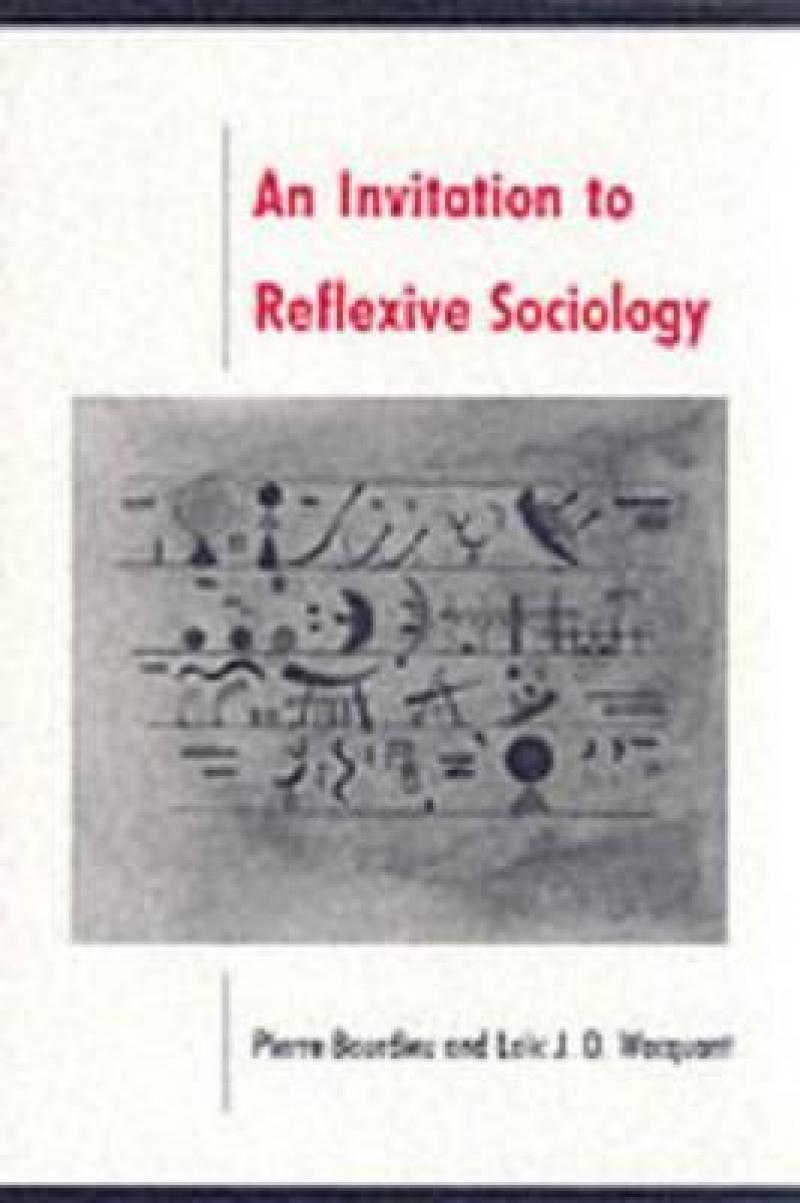'A rare opportunity to experience a great mind in action outside the usual conventions of academic self-presentation.' <br /> <i>Paul DiMaggio, Princeton University</i> <p>'The leading French sociologist of our generation, already well known through his researches and theoretical formulations, he appears here in the first person, in dialogue and in seminar, and in the magnifying glass of Loic Wacquant. One hopes the appeal of this self-presentation does not eclipse Bourdieu's other major works, for <i>An Invitation to Reflexive Sociology</i> promises to be Bourdieu's most widely-read book.'<br /> <i>Randall Collins, University of California, Riverside<br /><br /></i>“This is essential reading for anyone considering Bourdieuian-based educational research.”<i><br /><i>Educational Review</i><br /></i></p>
Firstly Loic Wacquant provides a clear and systematic account of the main themes of Bourdieu's work, outlining his conception of knowledge, his theory of practice and his distinctive methods of analysis. In the second part of the book Wacquant collaborates with Bourdieu to discuss the central concepts of Bourdieu's work, confront some criticisms and objections, and develop Bourdieu's views on the relations between sociology, philosophy, history and politics. Finally Bourdieu displays his sociological approach in practice: beginning with the practical demands of research, he moves, step by step, to a formulation of the principles of sociological reason.
Supplemented by an extensive and up-to-date bibliography, this book will be essential reading for anyone who wishes to understand Bourdieu's unique and outstanding contribution to contemporary social thought.
Part I: Towards a Social Praxeology: The Structure and Logic of Bourdieu's Sociology.
1. Beyond the Antinomy of Social Physics and Social Phenomenology.
2. Classification Struggles and the Dialectic of Social and Mental Structures.
3. Methodological Relationalism.
4. The Fuzzy Logic of Practical Sense.
5. Against Theoreticism and Methodologism: Total Social Science.
6. Epistemic Reflexivity.
7. Reason, Ethics and Politics.
Part II: The Purpose of Reflexive Sociology (The Chicago Workshop).
1. Sociology as Socioanalysis.
2. The Unique and the Invariant.
3. The Logic of Fields.
4. Interest, Habitus, Rationality.
5. Language, Gender, and Symbolic Violence.
6. For a Realpolitik of Reason.
7. The Personal is Social.
Part III: The Practice of Reflexive Sociology (The Paris Workshop).
1. Handing Down a Trade.
2. Thinking Relationally.
3. A Radical Doubt.
4. 'Double Bind' and Conversion.
5. Participant Objectivation.
Appendices.
References and Bibliography.
Name Index.
Subject Index
Firstly Loic Wacquant provides a clear and systematic account of the main themes of Bourdieu's work, outlining his conception of knowledge, his theory of practice and his distinctive methods of analysis. In the second part of the book Wacquant collaborates with Bourdieu to discuss the central concepts of Bourdieu's work, confront some criticisms and objections, and develop Bourdieu's views on the relations between sociology, philosophy, history and politics. Finally Bourdieu displays his sociological approach in practice: beginning with the practical demands of research, he moves, step by step, to a formulation of the principles of sociological reason.
Supplemented by an extensive and up-to-date bibliography, this book will be essential reading for anyone who wishes to understand Bourdieu's unique and outstanding contribution to contemporary social thought.
Produktdetaljer
Biografisk notat
Pierre Bourdieu was Professor of Sociology at the Collège de France.Loïc Wacquant is Professor of Sociology at the University of California-Berkeley and Researcher at the Centre de sociologie européenne-Paris.
